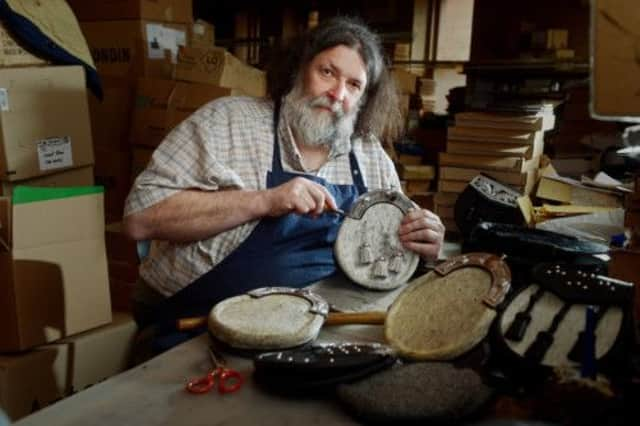Scots sporran makers threat from Pakistan imports


Malcolm Scott, whose family-run firm has been producing sporrans since 1937, said the ban is making it harder for Scottish firms to fend off competition from Pakistan, where manufacturers in the city of Sialkot have specialised in Highland wear.
He said Pakistan-made sporrans now account for the majority of the market, after making further inroads following the ban. His Edinburgh-based firm William Scott & Son has cut its workforce by more than half, from 22 employees to nine, since the EU ban on sealskin came into effect, and has also suffered losses on its stockpile of sealskins.
Advertisement
Hide AdAdvertisement
Hide Ad“It’s been an absolute disaster,” he said. “Having spent 40 years prudently building up stocks, I was hung out to dry. I was left with a huge stock of skins, some of which I had to sell at a huge discount to the Far East.
“Two and a half years later and there’s a huge increase in the amount of sporrans coming in from Pakistan.”
He said cheap Pakistani imports had been a threat before, but sealskin had been an “ace in the hole” for Scottish manufacturers, giving them a clear edge in terms of quality.
Scott was forced to switch to a combination of cow leather and horse hair. But even that process is now under threat as the recent horse-meat scandal that swept food retailers means fewer horses are being killed for meat on the continent, making it difficult to get supplies.
“We are in deep trouble,” he said. “I wonder how much more we can decline and still be viable, even with such a small number of staff.”
Meanwhile, manufacturers in Sialkot, in the Punjab near the Indian border, are thriving. Firms with British-sounding names such as Trafford Industries and Halifax Scottish are offering everything from kilts and ghillie brogues to bagpipes and sporrans. Some boast that they supply not just shops in Scotland, but also British regimental bands.
In 2009, the European Union passed legislation banning seal products on animal welfare grounds, with the ban coming into force a year later. An attempt by seal-hunting nations such as Canada to have the ban overturned failed last month.
The law does allow limited exemptions for sealskin from the Inuit people of the American Arctic, in order to protect their way of life.
Advertisement
Hide AdAdvertisement
Hide AdIan Chisholm, owner of Chisholms Highland Dress in Inverness, looked into using sealskin from the Innuit but said it would not have been practical, partly because of the bureaucracy involved in proving the origin of the skins.
Chisholms prides itself on producing all of its garments on the premises and has been successful in recent years, but its owner feels he has lost potential sales to cheaper foreign manufacturers. He too feels that sealskin gave traditional Scottish crafts people the edge over importers.
He said: “It lends itself to Highland dress because it has a lovely range of shades that goes very well with the colours used in kilts. There’s nothing to surpass it.”